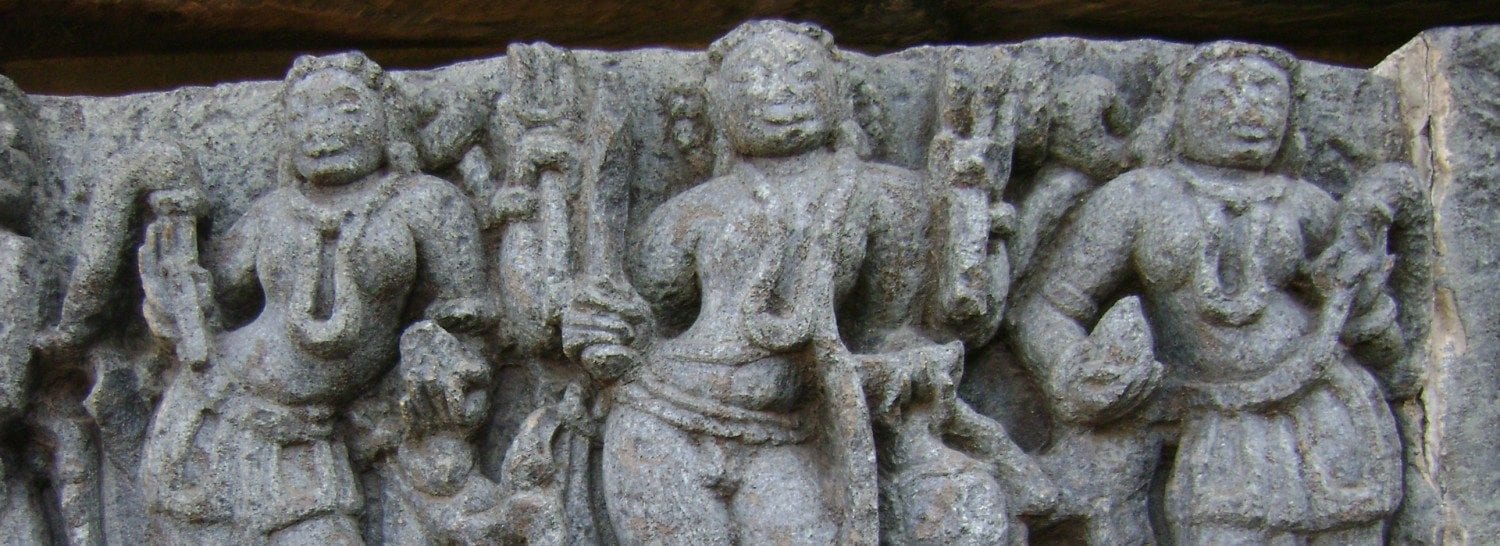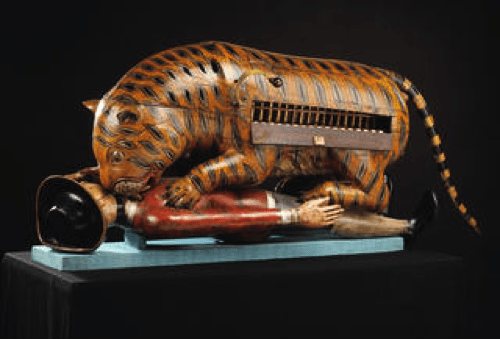HIST 2390
Civilization of India
SMU-in-Oxford
Summer 2019
Instructor: Dr. Rachel Ball-Phillips
Email: rmball@smu.edu
Course Description: This course provides an introduction to the history and cultures of the Indian subcontinent from the 3rdmillennium BCE to the present. Drawing on interdisciplinary methodologies, this course approaches history through visual and material culture, as well as the history of food and civilization. First, we will examine India’s place in the ancient world, then the entrance of Islam to the subcontinent in the 8thcentury, and finally assess the impact and aftermath of European expansion and imperialism. Through readings, field trips, and building a class website, students will learn how questions of history and culture shape identities and animate public life in South Asia.
The University of Oxford and the United Kingdom provide students unique opportunities to study South Asian History. Once the “Jewel in the Crown” of the British Empire, India generated an enormous amount of wealth for the United Kingdom from the seventeenth to the twentieth century. At the University of Oxford, students will have the opportunity to examine South Asian Coins and Paper Money at the Ashmolean Museum of Art and Archaeology with curator Shailendra Bhandare. In London, students will examine many of the treasures that the British looted from India (and they looted the word “loot” as well from the Hindustani language). At the Victoria and Albert Museum and the British Museum, students will see seals from the ancient Harappan Civilization, Indian textiles that were all the rage around the world in the 18thcentury, and the famous Tipu’s Tiger (pictured above). Students will walk in the footsteps of Mahatma Gandhi in London, and see the places he lived, studied, and explored as a young student and lawyer. Students will also be able to sample Indian cuisine in Oxford and London, where Chicken Tikka Masala is the national dish!
Student Learning Outcomes: This class fulfills the following University Curriculum requirements:
Historical Contexts (level 1) – Pillar
- Students will be able to identify the main events, actors, and evidence involved in a defined historical period.
- Students will be able to summarize in their own prose the major changes that took place over time in a defined historical period.
Human Diversity – Proficiencies and Experiences
- With respect to issues related to race, ethnicity, gender or societies in the developing world, students will be able to demonstrate an understanding of the historical, cultural, social or political conditions of identity formation and function in human society, including the ways in which these conditions influence individual or group status, treatment, or accomplishments.
Required Readings:
Thomas R. Trautmann. India: Brief History of Civilization. New York: Oxford University Press, 2011.
Please note that students are expected to read Trautmann and watch the BBC’s Story of Indiaseries before we leave for Oxford (available for free on YouTube). This will allow students to focus on their experiences in the United Kingdom rather than spending too much time reading for the course. Listed in the schedule of classes are the texts that correlate with each unit.
Assessment:
Grades will be based on the following:
Pre-Work (10%)
Excursion Blogs (10%)
Material Culture Timeline: British Museum (10%)
Material Culture Timeline: Victoria and Albert Museum (10%)
Final Film Project: Finding India in the United Kingdom – London visits portion (15%)
Final Film Project: Finding India in the United Kingdom – film and script portion (25%)
Quizzes – 4 (10%)
Participation (10%)
Course Components
Pre-Work: All students are expected to complete the assigned pre-work on Canvas before departing for Oxford.
Excursions: Each student must attend all of the scheduled local excursions. The field trips will take place during class time and as part of our course. Excursions include: a visit to the South Asian Coins and Paper Money collection at the University of Oxford’s Ashmolean Musem of Art and Archaeology, and a visit to the ISCKON temple in London. Students will write reflection blogs on both of these visits.
Reflection Blogs (500 words): As part of the excursion assessment, students are expected write reflection blogs. These blogs do not need to be as formal as a research paper, but should be written like a sophisticated travel blog. Examples of this kind of writing can be found in the blog sections of the New York Timesor the Washington Post. Students should refer to the article provided for their field trip of choice when writing their blog post. All blog posts should include a photograph from the student’s field trip experience. Students are required to attend all excursions and blog about each excursion.
Material Culture Timeline: British Museum and Victoria and Albert Museum:As part of our class, students will explore the South Asian collections at both the British Museum and the Victoria and Albert Museum. Students will select an object from each collection and complete material culture timeline entries on the class website: people.smu.edu/hist2390. Students will produce a short synopsis of each object and its significance. Students should be able to draw upon themes we have addressed in class. These synopses should be no longer than 500 words. Each student is responsible for uploading the image and their synopses in chronological order on the class website. This will culminate in a digital timeline on our class website that will be publicly available. Timeline Projects are dueXXX, at the beginning of class. Timeline entries should also be uploaded to Canvas for grading purposes.
Final Film Project: Finding India in the UK – London Visits Portion: Students will be divided into three groups, and as a group choose a theme related to “Finding India in the UK.” Based on that theme and discussions with the class, students will select one site related to their final project to visit during our three day visit to London July 24-26. Students will make a brief presentation to the rest of the class about the significance of the place they have chosen.
Final Film Project: Finding India in the UK – Film and Script Portion: The relationship between India and the United Kingdom is a central theme of this course. As a final project, students will create films create based on their own research on India and the British Empire, including footage/photographs taken while in the United Kingdom. Students are encouraged to be creative with their films. Students will work three groups to create their films. Each group is required to submit a script for the film on the day it is due. Further information on this project will be provided in a class handout. Films must be submitted (via youtube or vimeo) on August 9, 2019. We will view the films in class as part of our final class together.
Quizzes: There will be four pop quizzes given throughout the summer session to ensure that students are doing their assigned reading. This class is both lecture and discussion based. In order for us to have fruitful discussions, students will need to complete the assigned reading beforeclass
Participation: Your participation grade will include attendance in class and participation in class discussions. The participation grade will also include in-class assignments. You are required to have read and to be able to discuss all of the assigned readings. Failure to do so will negatively affect your participation grade.
Readings: Students are expected to read the Trautmann book (along with the Story of India BBC 6 part series) before coming to India. Professor Ball-Phillips will provide a guide that pairs the readings with the relevant episode.
Class Policies
Attendance: Attendance is mandatory and absences will affect the final grade. If you are sick, the class will be made available to you via video or recording.
Late Assignments: In fairness to students who turn in assignments on time, late assignments will be reduced one letter grade for each day (not each class) late.
Laptops and Technology:This is also a laptop free classroom, and you will only be allowed to use your laptops when they are needed for group work in class. Exceptions will be made for students needing academic accommodations (see “Disability Accommodations). All smartphones and tablets should be kept on silent and put away to avoid disruptions in class. Any students that texts, emails, etc. on their electronic device during class will be asked to leave.
For more on the laptop policy in this course, see http://chronicle.com/blogs/linguafranca/2014/08/25/why-im-asking-you-not-to-use-laptops/
Disability Accommodations: Students needing academic accommodations for a disability must first register with Disability Accommodations & Success Strategies (DASS). Students can call 214-768-1470 or visit http://www.smu.edu/Provost/ALEC/DASSto begin the process. Once registered, students should then schedule an appointment with the professor as early in the semester as possible, present a DASS Accommodation Letter, and make appropriate arrangements. Please note that accommodations are not retroactive and require advance notice to implement.
Religious Observance: Religiously observant students wishing to be absent on holidays that require missing class should notify their professors in writing at the beginning of the semester, and should discuss with them, in advance, acceptable ways of making up any work missed because of the absence. (See University Policy No. 1.9.)
Schedule of Classes and Activities
Week 1:
Monday, July 8
Indus Valley Civilization
Tuesday, July 9
Vedic India
Wednesday, July 10
Traditions of Renunciation
Thursday, July 11
Mauryan Empire
Week 2:
Monday, July 15
Indian Ocean Connections
Tuesday, July 16
Cholan Empire
Ashmolean Museum – India Before 600 AD Collection and After 600 AD Collection
Wednesday, July 17
Delhi Sultanate
Thursday, July 18
Mughal Empire
Monday, July 22
Ashmolean Museum Visit: Mughal Collection
Tuesday, July 23
Material Culture and Maps
Tour by curator of the Ashmolean Museum’s South Asia Coin and Paper Money Collection
Wednesday, July 24- Friday, July 26– Class Trip to London
Visits include:
– British Museum
– Victoria & Albert Museum
– ISCKON Temple
– London Trips based on student selection
Tuesday, July 30
European Entry into the Indian Ocean World and
British Expansion
Wednesday, July 31
The Looting of India
Thursday, July 1
Rise of Indian Nationalism
Monday, July 5
Independent India
Tuesday, July 6
Class Conclusion
Wednesday, July 7-Thursday, July 8
Reading Days
Friday, July 9
In-Class Presentation of Final Film Projects


